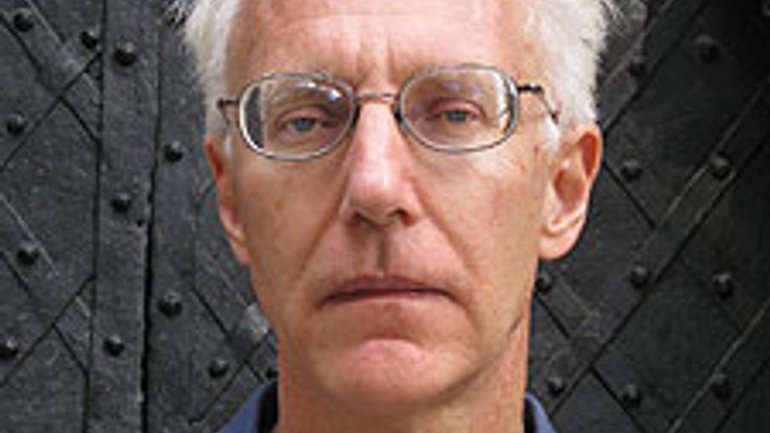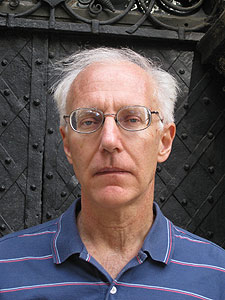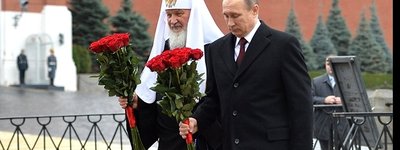A Dangerous Fiction

 What does Russia want? This has been the subject of much speculation in the Western press. If we know what Russia really wants, so goes the reasoning, then we can guess what it will do.
What does Russia want? This has been the subject of much speculation in the Western press. If we know what Russia really wants, so goes the reasoning, then we can guess what it will do.
Some point to purely political aims. Unpopular at home, President Putin needs a victory to bolster his image. No longer a superpower, Russia needs to assert itself among the world’s great nations. If that is so, then the “liberation” of the Crimea from Ukraine stands as an achievement that should restore world respect for Russia. Or at least fear.
Another political aim might be to take control of Ukraine’s government, which has attempted a Westward course. In that case, the Crimean operation has been a warning. If Ukraine persists in rejecting Russian influence, Putin may decide to invade more of the country, until its leaders come around or are replaced by a pro-Russian regime. If Russian forces seize major cities in Ukraine’s east and south, and perhaps link a pro-Russian Crimea with lawless, Russian-occupied Transnistria, the remainder of Ukraine will be nearly surrounded. Then, Russia may begin to dictate its political orientation.
Others emphasize economic factors. The Crimea has offshore gas deposits. Ukraine’s south and east have heavy industry and considerable private wealth. Ukraine is crossed by the pipeline that carries Russian gas to Europe. If economic factors are paramount, Russia’s aim may be to take control of Ukraine’s economically significant areas and to seize control of the pipeline. Or it may simply want Ukraine to join the Eurasian economic union. In that case, invasion and occupation of the entire country might be unnecessary. Partial occupation, followed by firm persuasion, might suffice. Politically unreliable and economically insignificant western Ukraine could be left alone.
But few commentators examine the cultural and spiritual aspect of Russia’s actions. If they mention it at all, they do not take it seriously – as if it were mere decoration for the “hard” factors mentioned above. This is a mistake.
On Friday, March 14, Russian Orthodox Patriarch Kirill, speaking at Moscow’s Cathedral of Christ the Savior, called for peace in Ukraine. He warned that “the desire of states on the spaces of the Russian World to have legitimate sovereignty and to realize this sovereignty should not be accompanied by the destruction of a universal, single spiritual space.” The patriarch denounced those who want to “divide our people, and especially to tear off the southern and western Russian lands from the single Russian world.” (RISU, 14 March 2014).
The Patriarch quite correctly distinguished the political from the spiritual: the sovereign states from the “spiritual space.” But then he immediately muddled the issue by referring to a “our people,” the “southern and western Russian lands,” and the “single Russian world.”
If all he meant was that the spiritual unity of Orthodox Christians should be preserved, that would be legitimate. Regardless of what ecclesiastical structures and divisions may exist in Russia and Ukraine, Christian unity should be maintained, particularly in the face of secularism. In fact, Ukraine’s churches, including the Catholic as well as the Orthodox churches, have joined in advocating Christian values. And some of them have worked in developing ecumenical relations.
In the current situation, however, the Patriarch’s words could plausibly be read to mean that he sees Ukraine’s independent government and its European course as a spiritual threat. That government, it should be noted, is not hostile to Russia or to Orthodoxy: interim Prime Minister Arseniy Yatseniuk has stated his willingness to continue to maintain friendly relations with Ukraine’s northern neighbor, and most hierarchs of the Ukrainian Orthodox Church seem content with the new government. An independent, European-oriented Ukraine does not threaten the spiritual unity of Ukrainian Orthodox Christians with the Orthodox of other nations. Why, then, would the Patriarch of Moscow be concerned?
But if Patriarch Kirill is worried about something other than the spiritual, that is another matter. If by “southern and western Russian lands” he means Ukraine and Belarus, if by “our people” he means all Eastern Slavs, and if his “single Russian world” is an amalgam of Ukraine and Belarus with the Russian Federation, then his concern is political. In that case, he is supporting Vladimir Putin’s expansionist foreign policy.
Does such a policy have a spiritual or historical basis? The “Russian world” – which could also be translated as “Rus’ world” – is based on the great medieval principality of Kievan Rus’. That principality did have a single Eastern Christian church and culture (actually a Slavicized Greek Byzantine ecclesiastical culture developed in Bulgaria and adapted to Rus’ conditions). But there was one cardinal difference. Kievan Rus’ was based, as its name implies, in Kyiv. The mother of the Rus’ churches was the metropolitanate of Kyiv, which looked to Constantinople as its source. Moscow was a latecomer. Well after the demise of Kievan Rus’, Moscow conquered its neighbors, gathering the old Rus’ lands into an expanding Muscovy, which eventually became the Russian Empire. That was transformed into the Soviet Union and then the reduced Russian Federation of today. The contemporary notion of a “Russian world” is thus anachronistic, combining the territorial extent of medieval Kievan Rus’ with modern Russia’s attempted political and ecclesiastical dominance over its neighbors. It is simply a fiction.
But it is a dangerous fiction. For it would be one thing to try to create a “Rus’ world” based in Kyiv – one in which Eastern Christian Ukrainians lived side by side with their Russian and Belarusian co-religionists, each church flourishing in its own nation-state, with fraternal relations among all. But it is quite another thing to advocate a “Russian world” where an authoritarian state with a subservient church rules a subject Ukraine and a subject Belarus. If this is what Russia wants, then we can expect it to take not just the Crimea and not just the south and east of Ukraine, but the whole. And that, pace the Patriarch, means not peace, but war.










